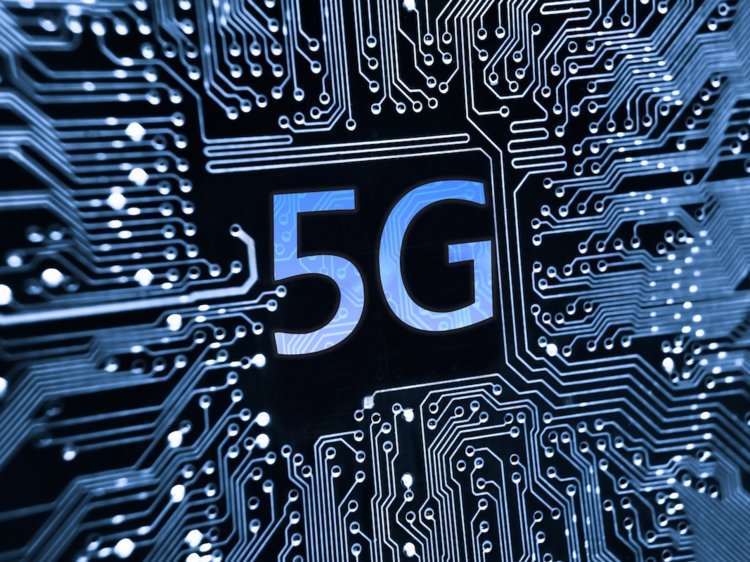The 5G phenomenon
March 1, 2018 | Expert Insights

5G was reportedly the main topic of discussion at the annual Mobile World Congress that took place in Barcelona this week. Huawei, a Chinese telecom company, is one of the largest ICT companies working on commercialising 5G. Huawei has been unable to penetrate US markets due to security concerns from Washington.
Background
There has been a vast advancement in mobile wireless communication in the last few decades. 5G is the latest “generation” of development in mobile communication. It is estimated to be 50 to 100 times faster than current 4G networks.
China first began using the internet in 1994. Less than 15 years later, it became the largest population on the internet. By 2011, China had the largest installed telecommunication bandwidth in the world. By 2014, China hosted more than twice as much national bandwidth potential as the U.S. The same year, the number of users using mobile devices to access the internet, overtook the number of those using PCs. According to a 2017 estimate, there are about 700 million Chinese Internet users.
Huawei is a Chinese telecommunications giant popular in markets across Asia, South America, and the Middle East. Huawei has been unable to penetrate the US market due to scepticism from Washington. The company had to cancel a deal with AT&T due to security concerns. In the February hearing of the Senate Intelligence Committee, FBI Director Christopher Wray said, "We're deeply concerned about the risks of allowing any company or entity that is beholden to foreign governments, that don't share our values, to gain positions of power inside our telecommunications networks”. Huawei was founded in 1987 by a former People’s Liberation Army officer and is thought to have close ties to the Chinese Government.
In January this year, the media released reports of a memo recommending that the US Government take over the work of deploying a 5G network. “Data is the oil of the 21st century and China has built the world’s largest reserve,” it read. “Building a nationwide secure 5G network sets the condition for future success in the information domain. Not building the network puts us at a permanent disadvantage to China in the information domain.”
Analysis
5G technology gained the spotlight at Europe’s Mobile World Congress this week. 5G gained attention due to its vast potential. Besides high-speed internet, it could also greatly improve the efficiency and reliability of any device that relies on the Internet of Things. This includes everything from autonomous or self-driving cars, to personal activity trackers. The concept of smart cities, where technology is used to maximise the efficiency of urban services, is also dependant on advanced Information and Communication Technology (ICT). Most recently, 5G technology was used during the Pyeongchang Winter Olympics.
Nokia, Ericsson, and Huawei are the three leading ICT vendors developing mobile 5G technology. Huawei has signed 26 Memorandums of Understanding (MoUs) with telecom operators including Britain’s BT, Bell Canada (BCE), France’s Orange, Germany’s Deutsche Telekom, and Vodafone. It also has deals with companies in South Korea, Japan, Australia, Turkey, and Saudi Arabia.
In a press release in February 2017, the International Telecommunications Union (ITU) said that commercial 5G systems may be ready by 2020. Estimates by the Global System for Mobile Communications (GSMA) say that 1.2 billion people across the world may be using 5G services by 2025. A third of these users will likely be in China.
There has been speculation that Huawei will launch its first range of 5G smartphones in the latter half of this year. AT&T has reportedly promised to develop 5G networks by the end of 2018. Huawei and other aspiring 5G companies face a number of challenges, including infrastructure. There is also the risk that the technology will not pick up once released – a number of emerging countries have not yet embraced 4G. Critics have also noted that 5G would serve to further widen the digital divide.
Another Chinese brand, Xiaomi, also gained attention due to its debut appearance at the event. Known as the “Apple of China”, the brand faced problems as its place as the top mobile vendor in China was challenged by other companies such as Oppo and Vivo. However, the brand has seen growth in 2017. It successfully tapped into the Indian market, where it outranked Samsung as the most popular cell phone company.
Assessment
Our assessment is that 5G systems are already a key component of most emerging technology today. ICT companies will have to face the challenge of commercialising the technology. Huawei will have the advantage of easy access to the world’s largest internet user base and smartphone market. We believe that the numerous MoUs signed by Huawei suggest that a number of US allies do not share Washington’s distrust of the company.








Comments